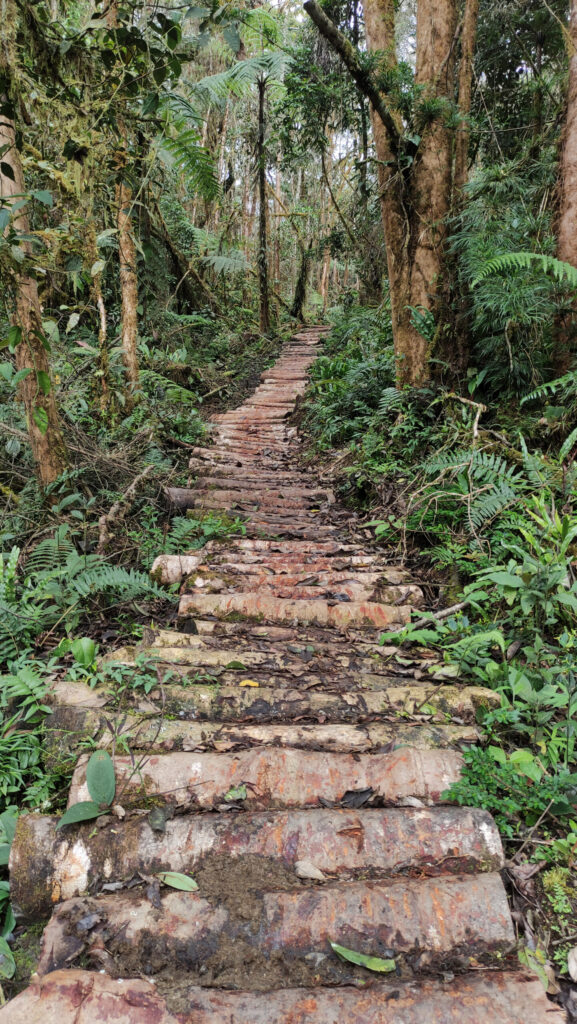At the University of Antwerp, PhD research often stretches far beyond the walls of the institution, embedding itself in real-world contexts and social struggles. For doctoral researcher Juan Sebastián Vélez Triana, this meant traveling to the high-Andes forests of Sumapaz, Colombia, where campesino (peasant) communities are engaged in ongoing battles for territorial autonomy and ecological justice.
The central focus of his PhD was to understand how social-ecological transformations, peasant struggles, activism, and politically engaged research intersect in the creation of more just and sustainable realities. Working alongside local communities, the project sought not only to analyse these struggles but also to actively contribute to them. Using ethnographic and participatory action research methods, the work became part of the collective effort to establish a Campesino Reserve Zone in Upper Venecia.
We decided to interview Juan about his journey…
What is your PhD about?
The central objective of my PhD research was to comprehend how processes of social-ecological transformation, campesino struggles for territorial autonomy, activism, and politically engaged research get entangled in social-ecological struggles aimed at creating more just and sustainable realities. It followed an ethnographic and participatory action research (PAR) approach developed to support the autonomous project to create a Campesino Reserve Zone in Upper Venecia, in the high-Andes forests of Sumapaz (Colombia). The research delves into how campesino struggles, ecological change, activist agendas, and researchers become entangled in contesting dominant understandings of conservation and the highland ecosystems, pursuing a deconstruction of such understandings from the standpoint of locally situated agrarian movements and strengthening contemporary struggles for territorial autonomy.
How did you plan and carry out your fieldwork?
The fieldwork was planned mainly through research agreements for collaboration constructed together with campesino organisations and civil society organisations in Colombia. The objective of each fieldwork stage was decided collectively to ensure that it would contribute in some way to the local transformative aspirations of civil society. It was primarily an ethnographic fieldwork study, but in its implementation, I integrated the ethnographic method with other forms of knowledge, such as local traditional knowledge and artistic creativity.
What’s one of the most important things you found in your research?
One of the biggest learnings from the process was to understand that, to conduct collaborative and transdisciplinary research, it is essential to decentralise the research process from theoretical problems and academics as the primary axis of articulation. I learned, instead, that understanding engaged researchers as just one small part of a larger transdisciplinary collective that works in the interests of civil society and social movements allows the process to be much more meaningful, transformative, and inclusive. The role of alternative languages and artistic creativity is key to creating such articulations.
What was the most challenging part of the whole process?
Research-wise, the most challenging part was to ensure, on a constant basis, that the research process was truly responsive to the interests and needs of the people with whom I was collaborating, aiming to keep the research grounded on the real struggles of people. On the other hand, being away from my home country and missing the familiarity of my culture was also a challenging part.

What advice would you give to someone just starting their PhD?
I would advise you to own your research from the beginning and pursue methodologies, theoretical approaches, and objectives that you feel passionate about, even if this sometimes differs from the research agenda of your supervisors.
To sum up, we learn from Juan that the journey was not without challenges. Ensuring that the work stayed aligned with community interests required ongoing negotiation and care. On personal levels, it can bring moments of cultural distance and longing for familiarity. Yet these difficulties became part of the process of growth and learning.
For those embarking on their own PhD journey, the advice is clear: make the research your own. The story of Juan’s PhD is ultimately one of entanglement: between people and ecosystems, research and activism, local knowledge and academic theory. It shows how scholarship can contribute to struggles for autonomy and sustainability — not as an outside observer, but as a participant in the making of new realities.
Discover the Children’s book of Valentia Montes here: https://heyzine.com/flip-book/valentia-montes
Read more in our Autumn 2025 edition of exchange to change: https://heyzine.com/flip-book/e2c-september2025


